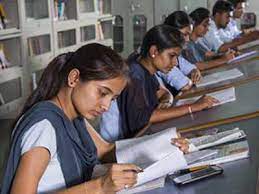
With open book exams, will cheating system come to an end?

The educational system in india has undergone significant development. 'Open book test' is one of the concepts included in this update. The Central Board of Secondary education (CBSE) recently said that it will begin a pilot program of open book exams for grades nine through twelve. teachers and students alike should take note of this news. students may use any study materials they like, including books and notes, during an open-book exam. In other words, they can use books and notes to locate and write the answers to the exam questions.
We will learn about Open Book Exams in this special article, including what they are, how long they have been around, if they are good or bad for kids' futures, how they will affect instructors, and what issues might come up if they are used in India. We will also discuss the students' deficiency in original thought and problem-solving abilities.
Are open-book exams actually that simple?
The Open Book Exam (OBE) is not as simple as it first appears. These tests are frequently quite challenging. This is not a memorization test; rather, it is meant to assess the student's practical knowledge and comprehension of the subject.
Students do not need to memorize the material for an open-book exam; instead, they should be able to comprehend it, evaluate it, and consider it from several angles. Answers in books cannot be copied by students. because responses that are copied verbatim from literature receive no marks from the examiner. When students use concepts from the book to write successfully in their own language, they receive marks for their work. Let me explain with an example: If a student copies the teacher's text verbatim from his notebook, he will not receive any credit. But he will receive full credit if he comprehends that paragraph and rewrites it in his native tongue.




 click and follow Indiaherald WhatsApp channel
click and follow Indiaherald WhatsApp channel